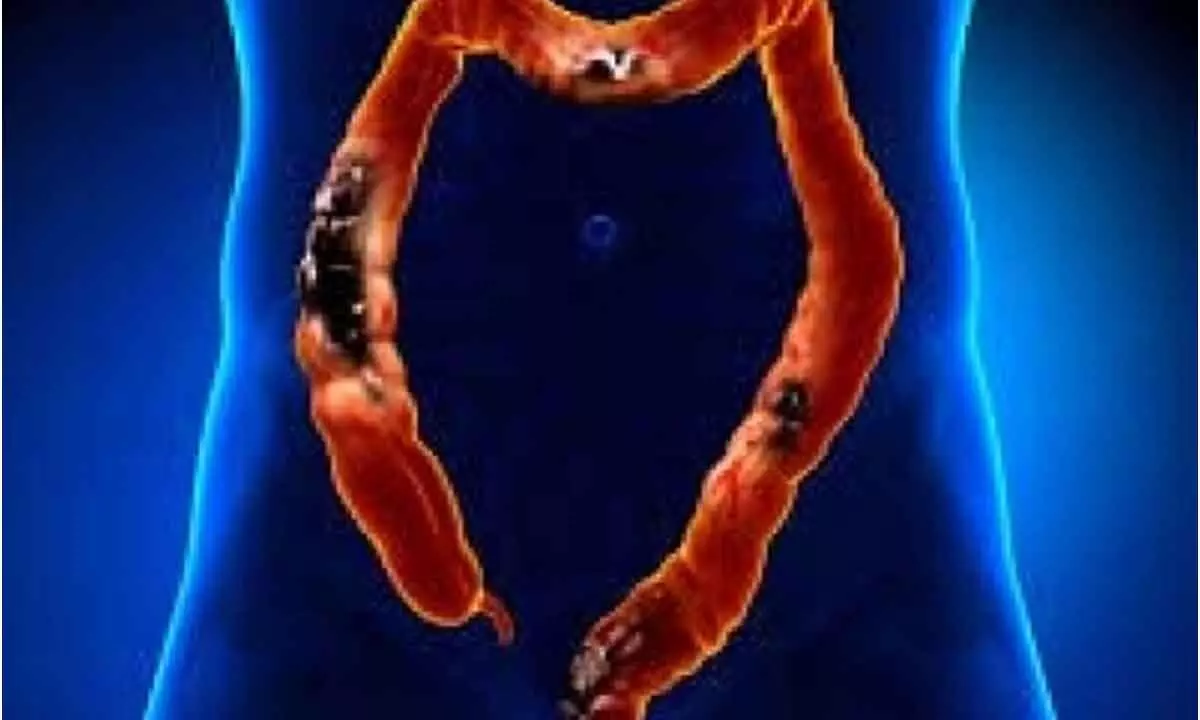Live
- Market Outlook: US bond yields, dollar index, FII data key triggers for next week
- Remembering maths genius Ramanujan
- The Third Eye: Ensuring an efficient governance
- Service activities of Ambica Sishu Kendra hailed
- Help in comprehensive development of Nellore dist
- Death toll in Punjab building collapse rises to two
- Make Christmas celebrations merrier and healthier with California almonds
- A carrom ball that bowled everyone: PM writes to Ashwin on his retirement
- Kashi Math Samsthan seer worships Lord Balaji
- Gold rates in Delhi today stable, check the rates on 22 December, 2024
Just In

While stress is known to significantly contribute to the onset of various health issues, a new study on Sunday showed how stress can worsen colorectal cancer (CRC).
New Delhi : While stress is known to significantly contribute to the onset of various health issues, a new study on Sunday showed how stress can worsen colorectal cancer (CRC).
A team of Chinese researchers showed that chronic stress disrupts the balance of gut microbiota, which then hastens the progression of CRC.
By eliminating some gut bacteria and inducing stress, they found a particular bacterial species as a potential therapeutic target.
The team from West China Hospital, Sichuan University of China, used an antibiotic cocktail -- vancomycin, ampicillin, neomycin, and metronidazole -- to eradicate gut microbiota. It was followed by faecal microbiota transplantation to find whether gut microbiota was necessary for chronic stress to fasten the progression of colorectal cancer.
The results showed that while chronic stress increased tumour growth, it also decreased beneficial gut bacteria, particularly the Lactobacillus genus, -- essential for a healthy immune response against cancer.
“Stress-related CRC progression can be attributed to a reduction in beneficial gut bacteria, as this weakens the body’s immune response against cancer,” said lead researcher Dr Qing Li from the varsity.
Lactobacillus -- being sensitive to vancomycin and ampicillin -- was found depleted in both the control and stress groups by the antibiotic cocktail.
To further explore how Lactobacillus influences CD8+ T cell levels -- which play a crucial role in the body's anti-tumour immunity -- and CRC progression the researchers supplemented mice with Lactobacillus during chronic stress and observed reduced tumour formation.
“Through faecal analysis, we found that Lactobacillus plantarum (L. plantarum) specifically regulated bile acid metabolism and enhanced the function of CD8+ T cells. This indicates how Lactobacillus may enhance anti-tumour immunity,” Li said.
The research showed potential for Lactobacillus-based therapies in treating patients, particularly those affected by chronic stress.
“Restoring beneficial bacteria in the gut, such as Lactobacillus, could strengthen the body’s natural defences against colorectal cancer,” concluded Li.
The study was presented at the United European Gastroenterology Week 2024 in Vienna, Austria.

© 2024 Hyderabad Media House Limited/The Hans India. All rights reserved. Powered by hocalwire.com






